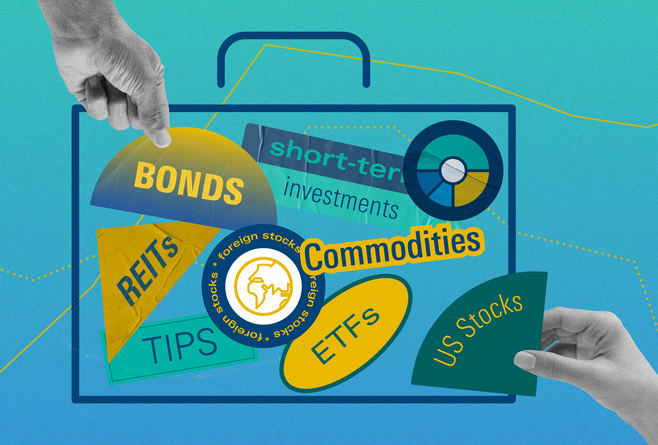James Gard: Every month, we look at funds' trends in Europe. So today I'm delighted to have Matias Möttölä. He is Director of Manager Research. Thanks for joining me today.
So multi-asset funds is what we're going to be talking about today. They were hugely in favour in the low interest rate era, and now they've fallen massively out of favour. Can you discuss the broad trends?
Matias Möttölä: Yeah, James, that's correct. We are really seeing a change in investor preferences. So, when rates were low or even negative, yields were low. Investors looked for options where the expected return was perhaps a little bit higher, and that's where allocation funds came in. They obviously have different levels of equities. Even for risk averse investors, these were the option of choice for many years. And then in early 2022, we started seeing yields go back to what we could call more normal levels. These funds started seeing some losses, and also then investors realized there are now perhaps money market options, cash options, bond funds that might give me some positive return, and perhaps I would switch to them. And so there is this change that we're seeing, and over the last two years, really, allocation funds have been in an outflow mode.
Gard: Sure. So, the money has gone out of multi-asset and into fixed income funds, money market funds, and cash funds. You have said in your report that multi-asset funds with an equity tilt have still managed to do okay in terms of flows.
Möttölä: Yeah. So, there is really this clear difference between allocation funds that have low risk, so that would be the cautious funds, and they typically have mostly bonds and money market instruments in the portfolio, and they have lost assets as that money has surely moved more into bond funds. These are not clear substitutes, but close substitutes. And then on the aggressive side, that means funds that have mostly equities in the portfolio, those allocation funds continue to win some new inflows. And that is really easily explainable by what is happening in the macro environment.
Gard: Sure. So, you say that the cautious funds have been the least popular. Is there a connection between overall equity market exuberance and the cautious funds being out of favour? Are people preferring to take on more risk?
Möttölä: I would say, yeah, there is the understanding that now these cautious funds, perhaps, there are other options if you want on an absolute basis, let's say a lower single digit return, maybe you want to go even into a cash account, maybe you want to go into a money market or a bond fund. And then the second thing is that, of course, these funds also suffered quite large losses in 2022. And so there are many disappointed investors out there who surely also for that reason wanted to look for something else.
Gard: Sure. So, there is a connection between lower performance and outflows, which you see across the fund universe generally. So, I was thinking about central banks and if they start cutting, will multi-asset funds come back into favour or is it not as simple as that?
Möttölä: So, multi-asset funds are obviously a good vehicle for long-term investing. They are kind of a solution, and you can select the type of fund that has the risk profile for your risk appetite. As you said, it may well happen over the next month or at least a year or two that interest rates start coming back down. That will give a slight boost to bonds overall. What it will do to equity market, which is obviously driving many allocation funds' returns, that is harder, of course, to forecast. But at least in that market, allocation funds, both sides, both the bond/money market side as well as then the equity side have nice return prospects theoretically, at least. So then surely, it will be an interesting proposition again.
Gard: Sure. So, in summary, you would say that multi-asset funds still have a role to play for investors despite their current unpopularity.
Möttölä: I definitely think they have. And one reason already is that even if you are a risk averse investor, just sticking to cash or money market or bond funds as a long-term investor doesn't often make sense. So, you want to take some risk to be able to beat inflation, which should be kind of the minimum target for any investing. And for that, you need equities as part of your portfolio or some other risk assets, and there, allocation funds are kind of a solution, a package that you buy with everything baked in.
Gard: Great. Yeah. Thanks very much. So, we'll keep an eye on these trends in the following months. It's going to be an interesting year for the markets anyway. So, thanks very much for your time and thank you for your insights, Matias. For Morningstar, I'm James Gard.




















